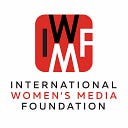Implementing Policies against Online Violence in Newsrooms: A Q&A with Seattle Times, Danny Gawlowski

Online violence is the silent plague of the newsroom. The long-term harassment of journalists has had serious consequences for press freedom, including self-censorship. Women and journalists from diverse backgrounds are disproportionately affected by harassment in the workplace. And, because of the atmosphere of silence, newsrooms fail to provide adequate assistance to employees who are victimized for carrying out their jobs. Fortunately, policies and best practices are being implemented in an effort to better protect employees as newsroom management becomes more aware of online abuse and its effects.
We talked to Danny Gawlowski, Assistant Managing Editor of The Seattle Times, about his experience working alongside the IWMF and its News Safety Project initiative, which empowers leaders in journalism to combat online violence:
“The Seattle Times was the first outlet to reach out to the IWMF for help in creating online abuse policies. They wanted to increase awareness of online harassment within the newsroom as well as develop policies and best practices to better protect staff.”
- IWMF, A Guide To Protecting Newsrooms And Journalists Against Online Violence
IWMF: What do journalists in your newsroom say about online violence, and how does it affect them?
Gawlowski: At this point, I think almost every journalist knows someone, particularly women and journalists of color, who has been directly targeted by online violence. Because of this, journalists in our newsroom are keenly aware of this reality. They want to know how they can help mitigate risk, what to do if they are targeted and how our newsroom leadership will support them if they are targeted.
What are the biggest challenges your newsroom faces when dealing with online violence?
Gawlowski: As an independent newsroom with limited resources, we’re mostly concerned about keeping up with ever-evolving threats. We do not have dedicated security staff. This is why we’ve appreciated working with the security experts at IWMF so much. Their advice has helped us greatly in making sure our staff are taking appropriate security precautions and that our leadership can be proactive in planning instead of waiting to improvise a response during an attack on our staff.
Our newsrooms cannot wait until an attack on a journalist is happening to decide how to best respond.
Why is it important for newsrooms to have policies in place to address online abuse?
Gawlowski: The threat of online violence is very real, meaning that newsroom leaders will need to be prepared to respond to this threat. Our newsrooms cannot wait until an attack on a journalist is happening to decide how to best respond. Taking the time to prepare and plan in advance will speed a response, lessen the burden on the journalist and decrease the damage done. As we all believe that journalism is critical, we as newsroom leaders need to take steps to protect journalists.
What are the biggest lessons your newsroom’s learned by creating a policy/staff survey/risk assessment procedure?
Gawlowski: The anxiety caused by online violence affects journalists far beyond those who have been attacked. Before doing this work, I did not fully understand how concerned our newsroom staff was about how newsroom leadership would respond if they were attacked and whether they would be supported. Creating a plan and being transparent about that plan ending up being a huge relief to staff. I think we all knew that having the plan and coordinating with other departments would help us during an attack. I don’t think we anticipated how much it helped staff in simply knowing it was there and that leadership did the work necessary to prepare.
How can newsrooms better support their journalists and equip themselves to handle online abuse when it occurs?
Gawlowski: When it comes to reporting and distributing a story online, our newsrooms are amazing in working together as a team. We need that same team effort, with everyone leveraging their own strengths and expertise, during response to online violence. A journalist should never be alone in facing this threat. When facing an attack, there are so many things that the journalist must do to keep themselves and their loved ones safe. Everything else, from responding online to securing compromised accounts to gathering evidence and coordinating with law enforcement, should be handled by colleagues who are not in the middle of a traumatic crisis. These roles and responsibilities should be assigned in advance so that everyone can leap into the work they need to do, similar to how we respond to breaking news.
With all of the duties most newsroom leaders have, it’s a relief to know that the IWMF is available to lend expertise on these complex security issues. I can’t say how much I appreciate working with the IWMF and having the assurance that we are not facing these threats alone.
Why should newsrooms collaborate with IWMF and take advantage of the services that it offers?
Gawlowski: The efforts to intimidate journalists with online violence are organized and evolving. With all of the duties most newsroom leaders have, it’s a relief to know that the IWMF is available to lend expertise on these complex security issues. I can’t say how much I appreciate working with the IWMF and having the assurance that we are not facing these threats alone. With the IWMF, I know that our newsroom is much better prepared to keep our journalists safe from online abuse and violence.
*The IWMF is dedicated to promoting a culture of change in newsrooms when it comes to tackling online violence. The use of the IWMF’s Guide to Protecting Newsrooms and Journalists Against Online Violence in conjunction with ‘A Mental Health Guide for Journalists Facing Online Violence’ contributes to the increasingly important conversation around online violence and its impact on journalists.
For more information visit www.iwmf.org/programs/online-harassment
